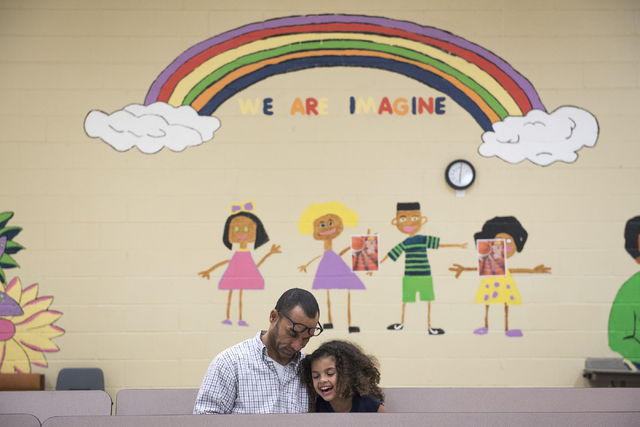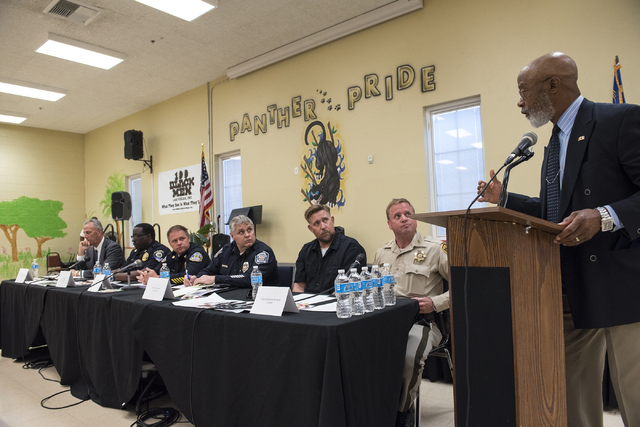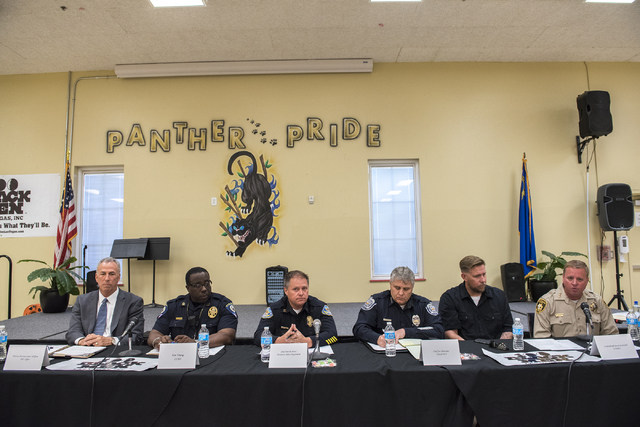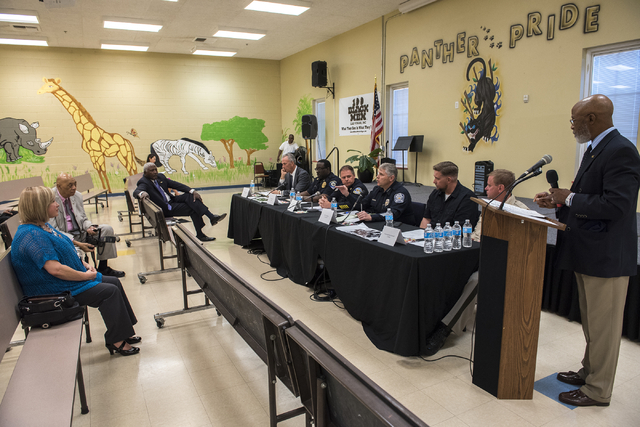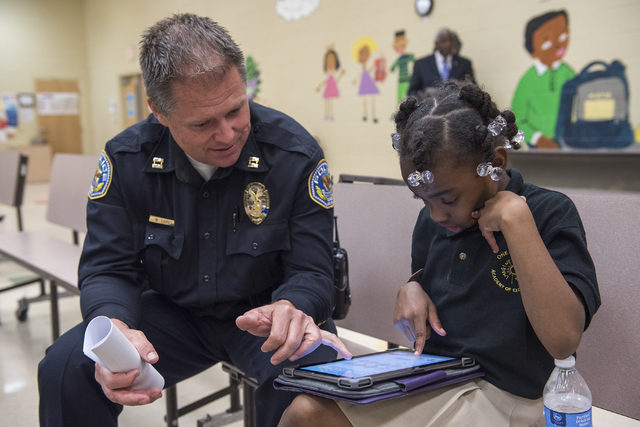Girl asks officer ‘are you coming to shoot me?’ at community event
Mujahid Ramadan illustrated the relationship between police and minority communities with a telling anecdote Monday night.
Las Vegas police officers working from the Bolden Area Command center in West Las Vegas have committed to visiting schools in the area. During a recent elementary school stop, an African-American girl about 8 years old raised her hand, Ramadan said.
“Are you coming to shoot me?” she asked the officer.
Ramadan works with 100 Black Men of Las Vegas, a mentoring and education organization for at-risk youth, and said he was struck by the question when he heard it.
“We still have a lot of work to do,” he said.
At a town hall meeting, held at the 100 Academy of Excellence charter school in North Las Vegas, law enforcement and black community leaders like Ramadan met to discuss policies that were in place to bridge the gap between police and communities of color.
Metro Undersheriff Kevin McMahill joined North Las Vegas Police Chief Joseph Chronister, Clark County School District police Capt. Ken Young and Henderson police Capt. Bobby Long to highlight the steps their agencies have taken to confront these kinds of problems.
Clark County District Attorney Steve Wolfson also spoke at the event. The audience was small, passionate and asked important questions.
How does an officer who has never set foot in a mostly poor, mostly minority neighborhood have the cultural competency to serve that community? How do the prejudices with which an officer was raised affect the way they conduct traffic stops or arrests?
McMahill acknowledged that Metro isn’t a perfect organization, but everyone on staff is expected to try their best. And Las Vegas police have multiple programs to acquaint police officers with minority communities.
The Adopt A Cop program puts recent police academy graduates in regular clothes and sends them to interact with people in struggling neighborhoods. Metro trains officers in fair and impartial policing.
Chronister and Long said their agencies have similar programs. The main thing is to see everyone as a human being first and foremost, they said.
Community outreach is vital, the speakers said. Wolfson said the district attorney’s office has been holding forums around the valley to teach people about what his office does, including the process to have records sealed and to get help in getting child support. Young said it is important that people in every community know there is a process to appeal expulsions based on the school district’s zero tolerance policies.
And the speakers agreed that unconscious bias does exist.
Joe Jones, president of 100 Black Men of Las Vegas, has been invited to sit on the recently formed Sheriff’s African-American Advisory Council.
If something important happens in the black community, the sheriff knows who to call, Jones said, and that’s an important difference between the Las Vegas Valley and Ferguson, Mo., where tensions after a fatal police shooting erupted into violent conflicts officers and people of color last fall.
“We’re now directly advocating for some of our own concerns as a community,” Jones said. “I have a great concern about improving the knowledge and awareness of young people about the police community and interaction.”
The next step, Jones said, is involving young people in the discussion, because they are the most likely to encounter the criminal justice system. And there’s still a lot to do.
A minority child born in Nevada is five times more likely to be incarcerated than a white child who committed the same crime, according to John “Jack” Martin of the Clark County Department of Juvenile Justice Services.
Contact Wesley Juhl at wjuhl@reviewjournal.com and 702-383-0391. Find him on Twitter: @WesJuhl.




